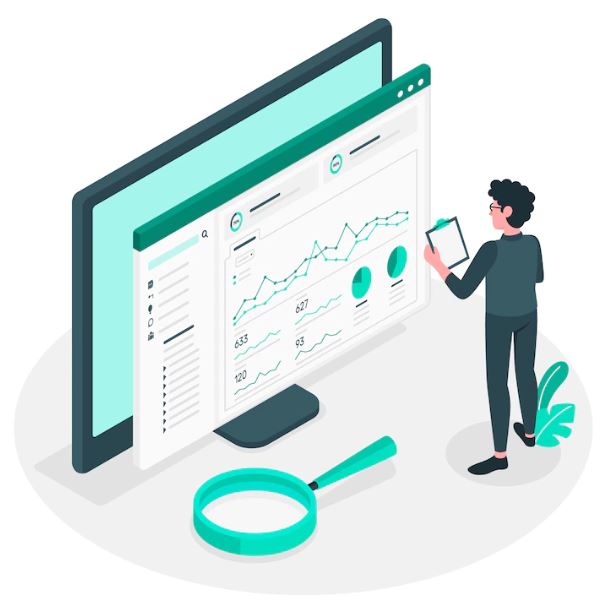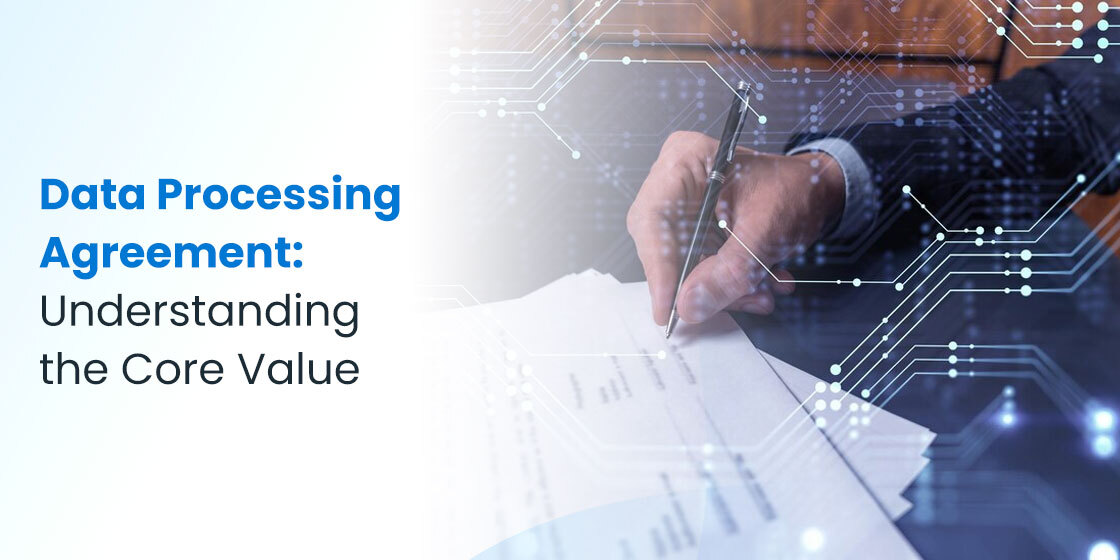Table Of Content
Learn About the Core Importance of Data Processing Agreement
Due to rising concerns of data theft and misuse, companies are actively looking to deploy protocols that can safeguard their customers’ data. It is certainly a difficult task that cannot be done very easily. There are various blockades that don’t lets companies succeed in this goal. The best they can do to protect it is to manually work with those third party resources that requires data for processing. This can be done by mutually signing a data processing agreement that can regulate both parties to share their data.
By using DPA, companies can strictly authorize the access of data for only few outside resources. It depends on them which other company falls in their agreement, as that is done with mutual consultation. You could think of it as a legal agreement that binds both parties into sharing treaty. Now, if the breach is done from one side, then the other company could put severe data damaging claims against them. Normally, this type of unwanted situation doesn’t arises because DPA is only signed with those companies that are fully trusted.
Being a business owner, you must need to understand those protocols that safeguard your company’s core data. Especially, the products that are closely associated with clients needs to be protected under all circumstances. Their information cannot be shared publicly, as that increases the chances of misusage dramatically. In this article, we will discuss how data processing agreement can help companies to ensure safe exchange and processing of data while going for software outsourcing services. It will be a good read for all the business stakeholders who want to operate online while protecting their classified information.
Let us first look at the core definition of data processing agreement, so that we can understand its utility for companies.
What is Data Processing Agreement?

Data processing agreement can be understood as a treaty that is mutually accepted between two parties. The data controller (parent company) and the data processer (third-party resource) are the two names that are usually specified in this model. The controller provides access authorization to the processer after agreeing on important points. This contract binds them together to follow some rules of data exchange, so that information sharing can be fully protected.
This agreement to solidify data sharing was introduced by European Union in 2018. They felt the need of this agreement when multiple data theft cases of EU citizens were reported online. It was a severe situation that prompted higher authorities to take some action that can protect the confidential information of their citizen. After many considerations, they finally opted to introduce a legal agreement that can bind third-party resources into a safe data exchange mechanism.
The EU authorities gave this contract the name of data processing agreement, so that everyone can understand its true essence. It enforced a regulation that made essential for every third party to sign the contract before accessing the data of EU citizen. It helped to cut down many cases of data misusage that were raging high earlier some time ago.
What is the Purpose of DPA?

The purpose of DPA is to build a mutual consensus between two parties when they are sharing a set of classified data. It lays out some technical and ethical requirements to be followed by both parties, so that the integrity of data cannot be compromised. It has been noticed in many cases that confidential data is shared to other sources without the agreement of its parent company. This type of scene usually occurs when the data is meant to be compromised for any wrong usage.
To make sure this does not happen every time, the DPA agreement is put forward to regulate both parties in a data exchange contract. It ensures that no information will be given outside without notifying the data controller. If something is deemed necessary, then prior approval will be required to make the exchange happen. This works as a legal guidance for both parties who are engaged in the contract. It lets them know about their responsibilities to safely process data, so that all the confidential information stays inside a circuit.
Importance of DPA in Software Outsourcing

A lot of companies prefer to outsource their internal projects to third parties. They have variety of reasons to do this such as shortage of technical experts, tough deadlines and more others. While outsourcing their projects, the only thing they are concerned about is the security of their data. This is something that makes every company worry because no one likes to loose crucial data. It is the source of their customers’ trust, which is why any problem in its integrity can bring serious impact on their market reputation.
To resolve this problem, companies use a data processing agreement to ensure safety of their crucial data. It is a legal agreement that lets the software outsourcing company knows how and when they can access particular data. Based on the points defined in this document, outsourcing company plans their data usage operations accordingly. So, the data processing agreement is quite important in software outsourcing, as it regulates the usage and sharing of data as per the mutual consensus.
In the European region, every data controller and processer needs to sign the DPA document when working on any type of application software. It is a necessary requirement that needs to be fulfilled by both sides before starting the work. If the data processer company is sitting outside the European region, then they also need to sign the GDPR-compliant document to showcase its credibility. It provides sufficient guarantee to the EU authorities that the contractor can be trusted as it deploys certain specialized security mechanisms in its outsourcing services.
What to Look for When Signing a DPA?
Being a business stakeholder or outsourcing company, you must need to keep in mind few important things while signing a DPA document. It is quite necessary because this information lets you know what type of task you would be going for. A lot of times, people do not read the terms and conditions while signing the data processing agreement. It only creates difficulties for them when a certain breach happens and the other party comes charging at them.
For the starters, we have mentioned some points below that should be remembered while creating or signing a DPA document. These are the basic points that define how and when the data will be shared or accessed as per the given functional requirements.
General Information
As the name suggest, this part will include all the general information about the data usage and sharing. It will define how the personal data will be used and whether the processing party will make it GDPR compliance or not. This part is therefore very significant for both sides as they will know the nature of data sharing from it.
The duration for which the processing will occur will be defined in this part too. It could be time specified, as data controllers do like to know this information. Other than that, it will also determine which type of data will be shared and how will the protection work. All of this will give a general overview of the contract which will be signed after mutual consultation.
Controller Responsibilities
Considering the GDPR compliance, the assigning of data to a trusted IT project outsourcing company is the core responsibility of the controller. The parent company must need to ensure that their partner is reliable to handle such critical information of the business. It is important because the customers’ data is connected to this agreement, and any wrong usage can compromise their confidential information.
Besides these, the document will also highlight that controller can issue certain processing instructions to the processor. It could be related to restricting some specific data, or allowing the sharing to work for a limited period of time. This will be defined by the controller, and must processor must need to abide by them.
Processor Responsibilities
The responsibilities of the processor are far more big as compared to the controller. They are responsible to control and manage every information shared to them. This is indeed quite a big task because data management requires some special skills. It cannot be taken lightly because data breach or misuse can happen at any instance. It is therefore the responsibility of controllers to ensure security and right management protocols for the shared data.
Looking at the GDPR compliance, the data processing company needs to do various tasks such as implementing security protocols, continuous sharing collaboration, data maintenance reporting and more others. All of these jobs are indeed technical, hence the processing company needs to perform them with on-point focus.
Technical Data Processing Requirements
Besides the basic information, DPA also includes various technical points that needs to be understood properly. This include important working procedures like how the data will be encrypted, what technologies will be used, etc. This is a type of information that requires technical understanding, hence it is better advised to look into it with a proper tech mindset.
There are various points in this part that lets you know how the data will be used by the processing company. Besides that, some crucial technical points defined in the GDPR compliance will be also defined in this document. It is best advised to read them carefully, so that no misunderstanding would be created at the later stages.
Final Words
That concludes our entire article in which we have discussed about data processing agreement in detail. This is indeed a very important document that needs to be formulated having the right knowledge. The data of any company is a classified information that should be protected under all circumstances. If it is being shared with any third-party, then proper agreements should be made before it accessible. The security of this data is very important, hence legal process should be followed all the times.
This blog has defined how DPA can help companies to safely share the date with third-party resources. It is a document that assists both parties to come on the same page, so that all the data sharing operations can be done with mutual consensus.
Meanwhile, if you are looking for a company that could help you to develop quality software systems, get in touch with us today. We have immense experience in developing different types of software apps rightly as per the stated requirements.
Frequently Asked Questions (FAQs)
| 1. What is data processing agreement? Data processing agreement refers to a contract that is made for sharing data between two parties. It lists all the legal and technical points that should be understood by both sides before sharing confidential company data. |
| 2. Why DPA is important in software outsourcing? DPA is considered important in software outsourcing because it helps to let both sides know which type of data will be shared. Based on that, they plan their actions and manage all the sharing operations accordingly. |
| 3. How to write a DPA agreement? To write a DPA agreement, you have to include all the important points that are relevant to data sharing. This could include things like privacy statement, security protocols, data sharing type and more others. |
| 4. What is the difference between DPA and GDPR? DPA contract is necessary for those companies that process personal data of other companies. On the other hand, GDPR is a compliance that needs to be fulfilled by the data processors who are looking to get information from controllers. |
| 5. What is the purpose of DPA? The purpose of DPA is to basically ensure that both data controller and processing party come on the same page before sharing the information. It eradicates all the ambiguity, so that both sides can show confidence on each other while sharing the data. |
